There has been a lot of press and hype about the use of blockchain technology. Although the technology sounds “cool,” it may not be the best solution for every business.
What is blockchain technology? Blockchain technology is one version of a broader technology called “distributed ledger technology,” or DLT. Think of how businesses generally collect or access data today. There is usually one large database, controlled by a central authority, such as a bank, a business or a government agency, which collects and makes the data available. The key difference with DLT is the data and software are decentralized and spread over a network of computers, so there is no central point of attack or failure, and no single controlling entity, which allows individuals and businesses greater control and trust over their records and data. Computers update and reconcile the information on a regular basis. Transactions are encrypted so they cannot be intercepted or hacked easily. Because the records are permanent, they cannot be changed, and are verifiable. The “blockchain” variation of DLT adds an additional level of protection, where computers also “verify” transactions before adding them to the ledger.
What are some of the possible applications of blockchain? The most popularly known use for blockchain technology is to enable trading in bitcoin and other virtual currencies. But blockchain technology could be used in virtually any industry desiring a transparent, verifiable, permanent record of transactions. Companies are exploring the use of DLT technology in many different areas, including messaging applications, automobile leasing, data storage, inventory management, recording real estate transactions, insurance claims, managing and sharing patient health data, supply-chain management, and gift cards and loyalty programs.
What are some possible concerns? Blockchain technology has obvious potential, but there are areas of concern. One concern is with energy consumption. Blockchain networks consume a great deal of electricity to process and verify transactions.
Another area of concern is with privacy. DLT records are permanent, immutable, transparent and distributed, so it is virtually impossible to “erase” a record. Developers of DLT applications will need to implement mechanisms to correct erroneous records. Also, while there can be “private” networks to shield transactions from public view, these private networks still require a more central authority. Finally, law enforcement officials are concerned with the potential use of virtual currencies for illegal purposes, which could be an issue if your business is going to accept virtual currencies.
What is the value for my company? DLT or blockchain technology may not be the best solution for all applications. In some cases, the existing technologies work fine and efficiently. Other business applications, especially where a verifiable history of transactions is desired, or a central intermediary is not desired, may be better uses of the technology.
Despite all the hype, DLT and blockchain technology are still in their early stages of development. They have a lot of potential to reshape how we think about payments, middlemen and trust so that multiple parties can agree on a single source of truthful data without the use of a trusted intermediary entity. But DLT applications may not be appropriate for all industries and applications. Businesses would do well to monitor developments in their industries but proceed with caution and ask questions before rushing to adopt blockchain technology and DLT.
John E. Ottaviani is chair of the Intellectual Property & Technology Group of Partridge Snow & Hahn LLP in Providence. Notably, John is the Co-Chair of an American Bar Association Smart Contracts and Blockchain Subcommittee.


